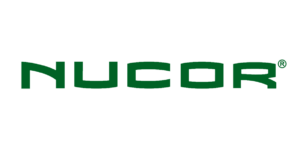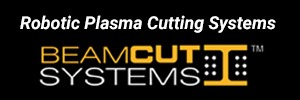3D Infrared Robotic Scanning Inspection
Now it possible to inspect the dimension, shape, and position of parts with transparent, black, or reflective surfaces during manufacturing cycles.
Posted: May 7, 2015
German measurement system manufacturer Aimess Services GmbH (Burg, Germany) offers the 3D infrared scanner R3Dscan as an automated solution with direct connection to industrial robots that makes it possible to integrate the scanner into production lines in order to inspect dimension, shape, and position of objects during manufacturing cycles.
The R3Dscan was developed specifically for inspecting objects with transparent, black, or reflective surfaces. Such parts can hardly be measured with popular fringe projection systems (e.g. white light scanners) that usually require surface preparation with anti-reflective matting spray and the placement of measurement targets. This time-intensive method is not feasible for 100 percent part inspection in mass production.
To avoid a pre-treatment of the measurement object, the R3Dscan resorts to a completely new measuring principle: In contrast to conventional fringe projection systems, the 3D scanner does not analyze the reflection, but instead the energy absorbed by the object to be measured. This energy is converted into heat, which is captured by the system using an infrared detector. A practical example of this from vehicle manufacturing clarifies the benefits of the R3Dscan:
The integration of the headlamps into the front end module is a crucial step within the production process. It is imperative that the headlamps are positioned accurately in the complex assembly unit. However, the position of the mounted headlamps on the supports of the sheet metal part cannot be verified inline in a sufficient way. So far, no optical measurement system has been able to scan the “transparent” headlights on the production line, and to automatically generate the result within seconds. To minimize the error rate nonetheless, tactile measurement devices are often used for acquiring at least a few measurement points.
The application of the R3Dscan fundamentally improves the inspection of the assembled front end module: For the very first time, it is possible to measure the integrated headlamps automatically inline. The robot-mounted system scans the headlamps and examines their positions in the vehicle coordinate system. The result of the measurement is available within 60 seconds.
The R3Dscan is also suitable for robot-assisted inline inspection of light weight material such as carbon fiber, glass fiber, and fiber reinforced plastics. “In the majority of cases, users strive to replace metal parts by lighter materials in order to develop more efficient and future-proof products,” reports Olaf Krüger, the R3Dscan product manager at Aimess. ”Due to this trend, manufacturers and component suppliers are facing new challenges as current production processes need to undergo a radical change.”
Because of the complexity and the combination of different materials (resin, fibrous material, etc.) and different manufacturing processes, new damage patterns arise, for instance insufficient resin curing, fiber fractures, or delamination. Moreover, quality assurance must include the inspection of 3D geometries.
“With the help of the R3Dscan, it is possible to setup an efficient inspection process with seamless integration into the production process of lightweight parts. Thus, we provide an optimized measurement solution to all manufacturers that intend to establish series production of parts made of lightweight materials,” adds Krüger.
Aimess Services develops measurement equipment which is sold by their subsidiary company Aimess Products GmbH. The company’s managing directors are David Nabs and Hendrik Richter, two measurement experts with many years of professional experience. Due to their in-depth technical knowledge, the young venture has quickly become an important market player with customers in many different industrial sectors, including the automotive and aerospace industry, ship manufacturing and engine building. Other users include measurement service companies, calibration laboratories, and manufacturers of coordinate measuring systems.
Aimess Products GmbH, Johann-Sebastian-Bach-Str. 60, D-39288 Burg, Germany, +49 (0) 3921 / 63 639 – 0, Fax: +49 (0) 3921 / 63 639 – 28, info-products@aimess.de, www.aimess.de.













